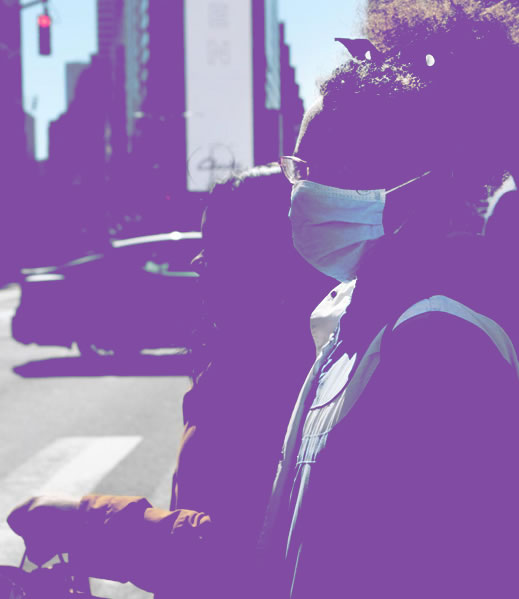What are the symptoms of COVID-19?
The most common symptoms are fever, cough, and fatigue. Shortness of breath can also occur, more commonly in severe infections. Some people do not develop any symptoms.
(N Engl J Med. 2020 Feb 28; JAMA. 2020 Feb 21.)
What should I do if I think I might have the COVID-19 virus?
If you have been potentially exposed to the COVID-19 virus you should self-quarantine. Should symptoms develop, inform the Ministry of Health for guidance. This will allow for a determination if hospitalization should occur, and, if so, to allow healthcare providers to be adequately protected to treat you in a safe manner to prevent further transmission of the virus.
How long does COVID-19 virus take to produce symptoms in the body?
Most people develop symptoms within 4-8 days after infection. Some people may develop symptoms as soon as 2 days after infection, whereas others may not develop symptoms for several weeks. It is uncommon for symptoms to develop >14 days after infection.
(Ann Intern Med. 2020 Mar 10.)
What precautions can I take to avoid contracting COVID-19?
Wash your hands frequently with soap and water. Limit social interactions and close contact (within 6 feet) with people. Avoid touching your face and ensure your hands are clean before touching your phone.
Can I get COVID-19 directly from someone who has it?
Yes, even if someone is infected with COVID-19 and not symptomatic you can still become infected and possibly develop severe symptoms.
(JAMA. 2020 Feb 21.)
How long can COVID-19 live on surfaces?
The virus that causes COVID-19 can survive up to 72 hours on plastic and stainless steel and up to 24 hours on cardboard. (NEJM. 2020 Mar 17)
Who is most likely to contract COVID-19?
It is not known if certain people are more likely than others to become infected with the COVID-19 virus.
How can I keep my child from getting COVID-19?
Your family should practice social distancing and ensure regular hand washing and use of alcohol-based hand sanitizers when hand washing is not possible.
What can we do to protect the elderly from COVID-19?
The elderly should limit all social engagements.
What is the risk according to age and sex?
A study of the first 44,672 laboratory confirmed cases in China (Figure below) shows the marked age distribution for case fatality, in which the elderly are disproportionately at risk (China CDC Weekly: ‘The Epidemiological Characteristics of an Outbreak of 2019 Novel Coronavirus Diseases (COVID-19)’). The analysis also revealed that males were more at risk, with a 60:40 distribution of deaths by sex. The Italian study on the first 22,000 cases in that country, published on March 17th (Livingston and Bucher, JAMA 2020), confirms that there were 0 deaths in people below the age of 30.

How do I differentiate between regular cold and COVID-19 symptoms?
It may not be possible to differentiate between the COVID-19 virus and other viruses that can cause the common cold. One common cold symptom is a runny nose that is an uncommon symptom of COVID-19.
(N Engl J Med. 2020 Feb 28)
What is the difference between quarantine and isolation?
Isolation and quarantine help protect the public by preventing exposure to people who have or may have a contagious disease.
Isolation separates sick people with a contagious disease from people who are not sick. Quarantine separates and restricts the movement of people who were exposed to a contagious disease to see if they become sick.
(www.cdc.gov)
Are hand sanitizers just as effective as hand washing?
No, hand washing with soap and water allows for the removal of large particles that may not be removed or completely decontaminated by hand sanitizers. If your hands are visibly soiled, you should always wash them with soap and water rather than use a hand sanitizer.
Which materials are most retentive of COVID-19?
Plastics and steel can harbour the COVID-19 virus for up to 72 hours.
(NEJM. 2020 Mar 17)
What are the best foods to protect against COVID-19?
There is no evidence that any specific foods can protect against COVID-19, beyond general support of the immune system. Also note, garlic is a healthy food that may have some antimicrobial properties. However, there is no evidence from the current outbreak that eating garlic has protected people from the new coronavirus (https://www.who.int/emergencies/diseases/novel-coronavirus-2019/advice-f...).
How effective are zinc and echinacea supplements in the prevention of COVID-19?
There is currently no evidence that any supplements are effective in preventing COVID-19. How exactly is COVID-19 treated once someone contracts it?
Treatment is non-specific and depends on the severity of illness. There is currently no scientifically proven specific treatment for COVID-19, though several drugs are undergoing clinical trials to determine their effectiveness.
Where can I get the most accurate information on COVID-19?
Accurate information is available from the websites of WHO/PAHO; CARPHA; CDC; NIH.







